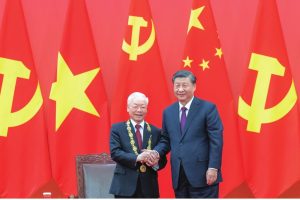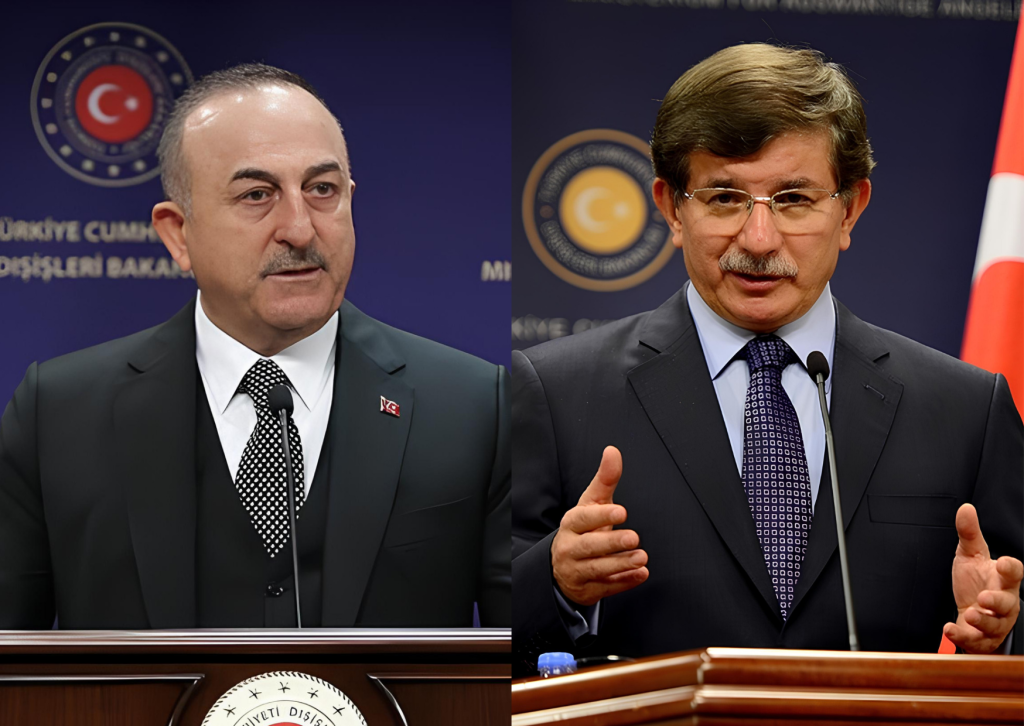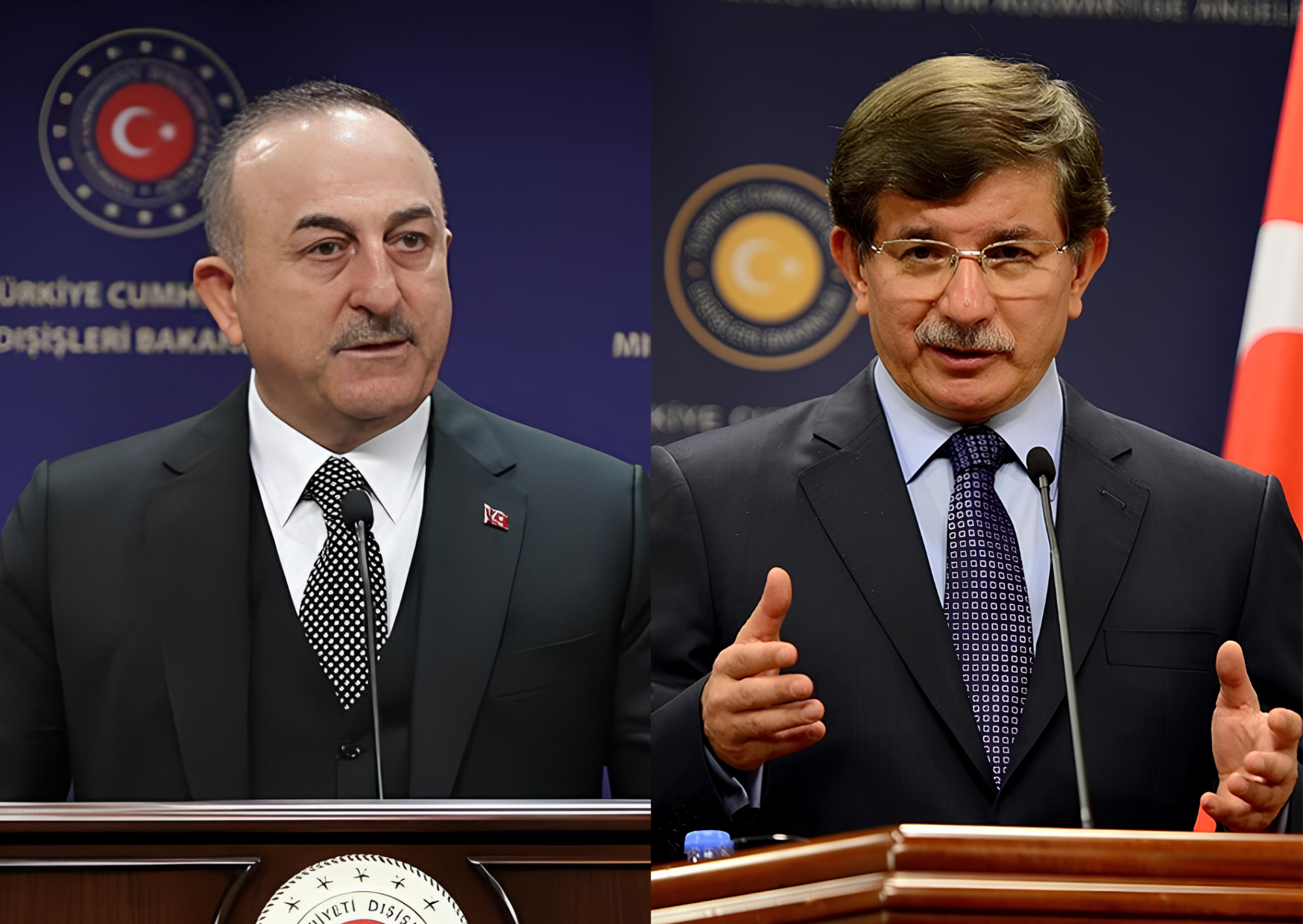
The article analyses Turkish Foreign Policy, highlighting the differences Between former ministers Davutoglu and Cavusoglu.
October 25 , 2023

Since its founding in 1923 by Mustafa Kemal Atatürk, Turkish foreign policy has undergone a series of transformations in order to adapt to the nation’s interests as each legislature and government has developed. Moreover, throughout these variations, Turkey’s geographical position as a player between Europe and Asia has remained the same, which has allowed the nation to employ a series of diplomatic, political and economic resources at the beginning of the 21st century to forge a new foreign policy vision, which has been widely discussed and referred to as the “New Turkish Foreign Policy” in various media and academic circles, including articles, research, publications, and more.
The origin of this new Turkish foreign policy is usually placed at the beginning of the 21st century with the electoral triumph of the new Turkish party in 2002, the Justice and Development Party led by the later Prime Minister Recep Tayyip Erdoğan. At the same time, with the start of a new legislature under the AKP government in 2003, Turkish Prime Minister Erdoğan took into consideration the studies conducted by the academic and professor of international relations Ahmet Davutoğlu, who was to serve as the Turkish Prime Minister’s advisor on international relations.
Ahmet Davutoglu Period: Strategic Depth and Zero Problem with Neighbors
The doctor and professor Ahmet Davutoğlu is considered by the academic circles and the media as the architect of this new Turkish foreign policy. His main reference work is his 2002 book “Strategic Depth” in which he proposes that Turkey, taking into account its “Historical Depth” should play a much more assertive role in its international policy, strengthening its relations with neighboring countries and above with the states of Central Asia and the Balkans.
His theoretical contributions to this new foreign policy include the use of a new diplomatic discourse and conceptualizes the rhythmic diplomacy, and above all the use of “Soft Power” in order to position Turkey as a power both at a regional level as internationally.
It is possible to call this foreign policy as “ambitious”, while many critics at the time also called it “Neo-Ottomanist” because its interest was to strengthen its relations with its neighbors in the region, taking into account the Ottoman historical legacy, strengthening relations with the nations that were once part of the Empire. In this way, during this first period, Turkey significantly improved its diplomatic relations with the countries of Central Asia, with Russia, with China and with the United States. Likewise, in October 2005 negotiations for Turkey’s accession to the European Union began.
Davutoğlu was later appointed as Turkey’s Minister of Foreign Affairs (2009-2014). With this new designation, it is interesting to highlight the name of his foreign policy “Zero problems with neighbors”. Within the framework of this new policy, initiatives to improve relations with Greece and Armenia were taken into consideration. At the same time, Türkiye played a role as a mediator between Israel and Syria.
With the development of the foreign policy there are two events that may mark the end of Davutoğlu as Foreign Minister, namely: The crisis in Egypt and the Crisis in Syria. All these events produced by the Domino Effect of the Arab Spring in 2011.
Regarding Egypt, the Turkish government expressed its support for Egyptian President Mohamed Morsi, who was backed by the Muslim Brotherhood However, Morsi was deposed by the Egyptian army weeks later. Turkey spoke out against the coup. Turkey’s public support for Morsi and his criticism of the Egyptian government led by President Abdel Fattah al-Sisi led to strong tension in relations between the two nations.
The Egyptian authorities accused Turkey of interfering in its internal affairs and of supporting groups considered terrorist by Egypt. At the regional level, Turkey’s support for the Muslim Brotherhood was also divisive as several Arab states such as Saudi Arabia and the United Arab Emirates supported the Al-Sisi government and viewed the Muslim Brotherhood as an extremist organization, accusing Turkey of to interfere in the internal affairs of an independent State.
Regarding Syria, during the civil war of this nation, Davutoğlu was elected as Prime Minister (2014-2016) while Erdoğan was elected as President of Turkey. Likewise, Mevlüt Çavuşoğlu was appointed as Minister of Foreign Affairs of Turkey. During this period, Turkey supported the rebels who were seeking the end of the Syrian government led by President Bashar al-Assad. This position was based on the belief that the Assad regime was illegitimate, and that democracy and human rights should prevail in Syria.
Domestically, however, the crisis generated a considerable increase in the number of Syrian refugees to Turkey. This posed significant humanitarian and economic challenges for this nation. In addition, in 2015 a significant event takes place in relations with the Russian Federation. In that year, the Turkish government shot down a Russian military plane near the Turkish-Syrian border. This incident generated a series of tensions between the two nations, and Russia implemented a series of economic sanctions against Turkish companies.
In 2016, former Prime Minister Davutoğlu resigned from his post and Binali Yıldırım was elected in his place, who was later known for his “Make more friends” foreign policy. Mevlüt Çavuşoğlu was appointed for the second time as Minister of Foreign Affairs and a reconstruction of diplomatic relations in the region begins.
Mevlut Cavusoglu Period
Very few of today’s foreign policy performance has been described in comparison to the beginnings of Turkish foreign policy under the AKP. Davutoğlu’s foreign policy vision continued in the subsequent government with Mevlüt Çavuşoğlu as foreign minister, and that, unlike the latter, there were no big ideas associated with him as there were with his predecessor Davutoğlu (2009-2014). Subsequently, in April 2017, Çavuşoğlu through an article described the “New Action Plan” of the post-Davutoğlu foreign policy. In these new guidelines, he described the following guidelines: “Respect for international law, the peaceful resolution of disputes, the active role of Turkey in international organizations and the focus on humanitarian diplomacy”.
Similarly, it should be noted that during the events of the Syrian civil war, Turkey’s regional position was weakened in what became known as “Precious solitude”. The foreign policy of “Zero problems with the neighbors” did not work at all and had repercussions for Turkey on the international stage. In this way, when Yıldırım is appointed as Prime Minister, Turkey begins a turn in its foreign policy, evaluating its failures and focusing much more on the use of Hard Power as opposed to soft power. The use of soft power was not abandoned, but Turkey focused much more on the development of hard power, through the modernization of the military and the nation’s security, especially after the coup attempt against President Erdoğan in 2016. Thus, seeking to improve its diplomatic relations, Turkey began a slow recovery of its relations with Russia. An example of the security policy and the improvement of these relations is the purchase of anti-aircraft defense systems by Russia in 2019. Since then, cooperation between the two States in terms of security has increased considerably, despite constant criticism. carried out by the United States and NATO (of which Turkey has been a part since 1952).
Likewise, at present, it is possible to say that Turkey is looking to play a much more active role in the region, after the so-called “precious solitude” that characterized Turkish foreign policy from the events of the Arab Spring until after the Coup attempt. of State. Turkey has invested in developing a much more assertive security policy and has sought to strengthen its relations with the Balkans, Central Asia, Russia and Latin America.
And to reinforce this current foreign policy, there is perhaps no better example than Turkey’s role in the Ukrainian war, which began with President Putin’s initiation of the so-called “Special Military Operation” in February 2022 against Ukraine’s territorial integrity. In this way, Türkiye has been able to play an important role as an active mediator in the conflict between the two States. A prime example of this are the prisoner exchange agreements reached between Russia and Ukraine in 2022, mediated by Turkey. Likewise, his mediation work is also found in the Black Sea Agreement signed between both States in the city of Istanbul in July 2022. This agreement allowed the resumption of the commercialization of wheat, cereals, and other products internationally through a Humanitarian Corridor established in the Black Sea. The agreement was intended to reduce famine in African countries and curb rising food prices. On the eve of the anniversary of this agreement, in July 2023, President Putin decided not to renew it, alleging that the conditions agreed with this nation were not being met and that at the same time the food products were not reaching their main recipients, the African countries.
Even so, it is necessary to observe how Turkey actively seeks to play its role as mediator between both parties in order to achieve the resumption of the agreement or at least a similar initiative in order to reduce the impact of hunger in the most affected countries.
This role as a mediator can be seen as the greatest diplomatic success that Turkey has had in recent years after the period of “Precious Solitude”. And it is an event that says that Turkey is back on the international stage, looking to position itself again as a regional power, as well as internationally.
In conclusion, it is possible to describe that Turkish foreign policy under Çavuşoğlu vision has sought to adapt to changing realities in the region, leading to a much more transnational approach. It is possible to say that Davutoğlu put a lot of emphasis on the use of soft power, which is still in place, but Turkey has invested much more in hard power in the pursuit of the nation’s security, especially after the events of the Arab First and the coup attempt against President Erdoğan in 2016. It is important to note that the transition from a ‘Soft Power’ to a ‘Hard Power’ approach in Turkish foreign policy is not necessarily an absolute shift, but rather an adaptation to changing realities in the region and in the international arena. Moreover, these approaches are not mutually exclusive, and a country can use both soft power and hard power in a complementary manner to achieve its foreign policy objectives.
It is true that, at the beginning of the Turkish foreign policy period under the AKP, Türkiye strengthened its relations with the European Union, with Russia, with NATO and with its neighbors. This can undoubtedly be seen as a success that sought to position Türkiye as a reference in the region, strengthening its relations with the countries of the Middle East, Central Asia, and the Balkans. Turkey wanted to be seen as a nation of reference for Muslim states.
Following the Covid-19 pandemic, Turkey wishes to send a message to the international community that it is back in the international arena, seeking to play a much larger and more active role both in the region and in the international community, and an example of this pragmatism is its position in the Ukrainian war, as an active mediator between the two states, as well as its position in NATO, An example of this pragmatism is its position in the Ukrainian war, as an active mediator between the two states, as well as its position in NATO, allowing Finland and Sweden to join as new NATO members, but under certain specific conditions regarding Turkey’s security in relation to the PKK. Similarly, it is also considerable to study the role Turkey intends to play in Central Asia, a region made up of countries with Turkic roots such as Kazakhstan, Kyrgyzstan, Uzbekistan, where Turkey intends to play a much greater role of influence as these nations seek to distance themselves from Russia over the latter’s role in the war in Ukraine.
A curated seletion of FA’s must-read stories.
Written By: BUGRA NARIN
Written By: FURKAN ETIK
Written By: ALPEREN MOROVA
Written By: OMER FARUK KARA
Written By: E. ERDEN
Written By: SHOHREH POOLAB
Written By: ALEYNA TASTAN
Written By: CIHAN KAAN GAZI

Gabriel Enrique Sánchez Ramirez is a Venezuelan student in the Master's programme in International Relations at Ankara University. He is also the Third Secretary of the Venezuelan diplomatic career. He is currently writing his thesis on Turkish foreign policy and the Turkish mediation between Ukraine and Russia in the context of the current military conflict between the two nations. He plans to begin his doctoral studies in Turkey next year.
Written By: ABDURRAHMAN ADIGUZEL
Written By: BEYZANUR SARICICEK
Written By: SELIN ARDIC
Written By: NILAY CELIK
Written By: ELDANIZ GUSSEINOV
Written By: JOSEF SCHOEFL
Written By: SINEM UNALDILAR
Written By: FATIH CEYLAN
FA’s flagship evening newsletter guilding you through the most important world streis ofthe day. Delivered weekdays.
